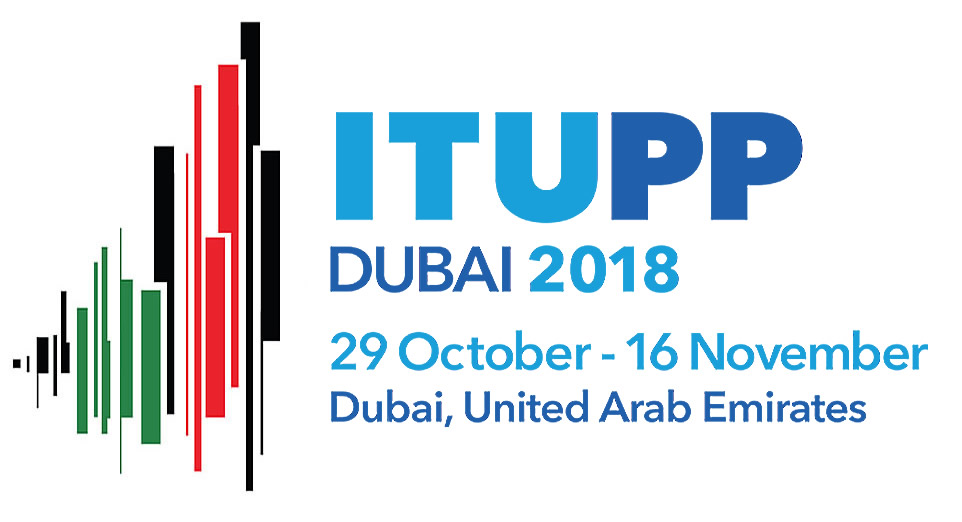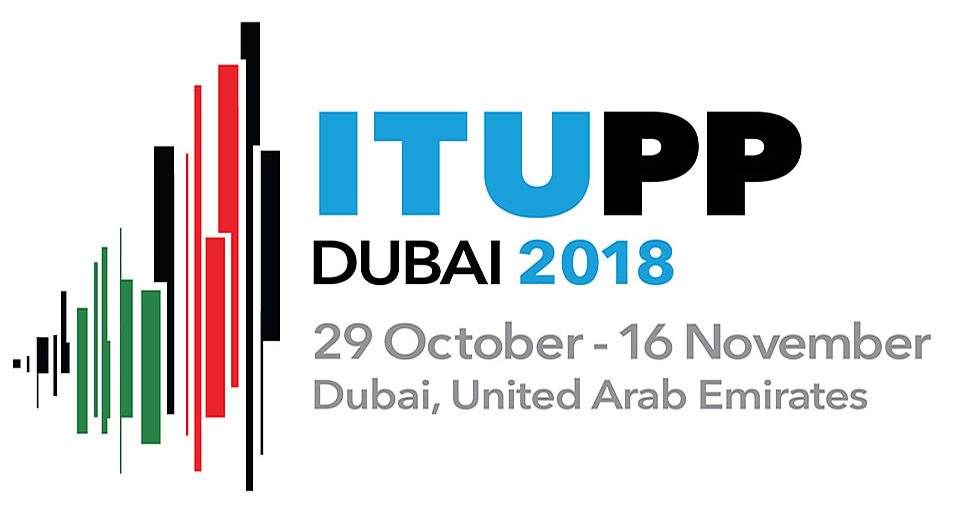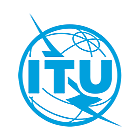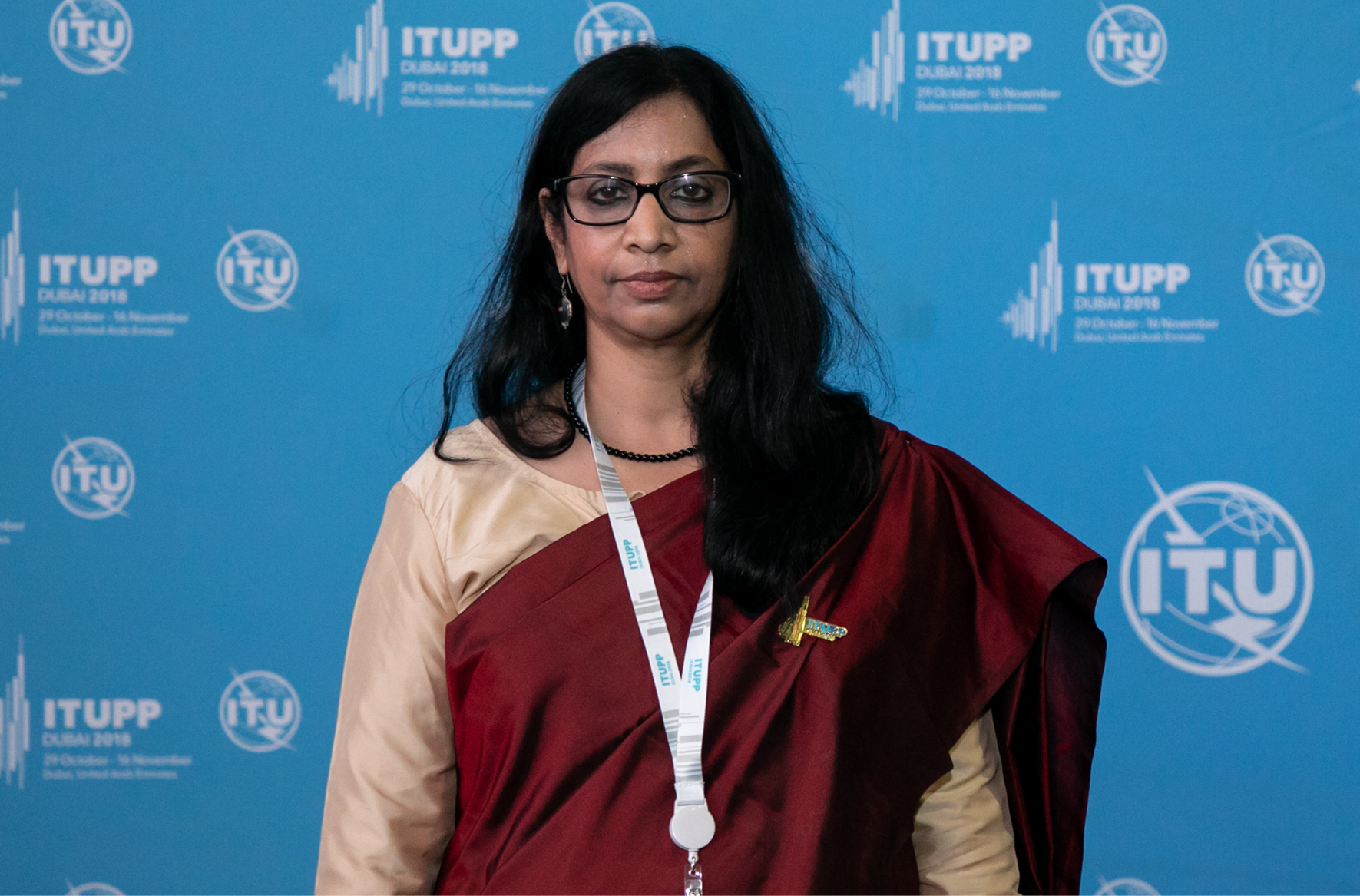Information and Communication Technology (ICT) is today, deeply intertwined with almost every aspect of individual, societal and global activity. It has the power to transform societies, economies, and nations. It plays a key role in each of the United Nations’ Sustainable Development Goals, providing the infrastructure needed to achieve them. It is my proud privilege to express our view on behalf of the Government of India and our Minister H.E Manoj Sinha for the development of ICTs, which can play a vital role in connecting people, and communities for the economic development of society, particularly in developing countries.
India, which is progressing at a rapid pace, has about 1200 million phones, and we will reach about 1700 million phones in the next 3-4 years. It was believed that people with low per capita income can’t afford mobile phones. However, through an innovative service models, Indian telecom operators are offering lowest tariff in the world, making the mobile affordable even to those who have very low income. But, even now there is lot of scope for growth in this sector because although at present, our urban telephone density is about 160% but the rural tele-density is only at 59%.
We witness two broad situations, combining challenge and opportunity, on the trajectory of the evolution of ICT. The first is the challenge of bridging the digital divide, which will take the fruits of digitalization to all segments and sections of the world’s population. And the second is the opportunity being created through new ICT technologies and innovations – such as 5G, Internet of Things, Machine to Machine communication, Big Data, Cloud Computing, and Artificial Intelligence – to provide transformational services in areas such as e-Governance, Healthcare, Education and e-Commerce.
Leadership is critical to any sustainable institutional transformation, including ICT-enabled transformation. The inherently cross-sectional nature of ICT requires institutional arrangements that ensure alignment of goals, coherence of strategies and policies, and coordination of investments across all relevant sectors. There is no single model, no “one size fits all” institutional solution. However, there are certain common foundational principles that will work across most countries and contexts, in harnessing advancements in ICT into a powerful tool of development.
I take this opportunity to briefly present my country India’s experience in the area of digital inclusion and empowerment of citizens through ICT-enabled growth and development. A few years ago, we launched Digital India – a flagship programme of our Government. It embodied the vision of our Prime Minister Shri Narendra Modi, to transform India into a digitally inclusive and empowered society, where the benefits of digital connectivity are available to each and every citizen, and where human aspirations are not limited by considerations of practicality and feasibility. As we aptly summarize in Hindi – Sabka Saath, Sabka Vikas – that is, Development of All, with the Participation of All.
We have taken up a unique project (BharatNet), to broadband-enable all our 250,000 Gram Panchayats (cluster of villages) in the country by March 2019. It gives me immense pleasure to share with you that – through accelerated execution over the last two years – we have reached the half-way mark in this journey, by laying nearly 300,000 Kilometers of Optical Fiber Cable (OFC) across the length and breadth of the country. In terms of scale, BharatNet is possibly the largest project of its’ kind in the world. The infrastructure it creates will be available for use by all Service Providers – on a non-discriminatory basis. India is also happy to share that it has just completed 115,467 village clusters using indigenously developed technologies by the Centre for Development of Telematics (C-DoT), like GPON, Wi-Fi etc., optical fibre cables and other equipment. The object is to ensure digital platform for all applications such as e-health, e-commerce, e-education, e- governance etc. through Broadband highways. The difference that initiatives such as BharatNet brings to the lives of our people, especially those from the less privileged sections, and the resultant economic and development opportunities that open up, is what inspires us in our endeavors, and give us the conviction and strength to drive forward on the path of Digital Inclusion. We know it is a long and arduous journey, but – as the saying goes – “A journey of a thousand miles, begins with a single step”. Additionally, such projects also give us the experience and expertise which can be of relevance and use to our partner countries around the world.
India has recently formulated “New Digital Communication Policy 2018” which envisions supporting India's transition to a digitally empowered economy and society by fulfilling the information and communications needs of citizens and enterprises by establishment of a ubiquitous, resilient and affordable digital communications infrastructure and services. The ‘Customer focused’ and ‘application driven’ NDCP-2018 shall lead to new ideas and innovations, after the launch of advanced technology such as 5G, IOT, M2M, etc. which shall govern the telecom sector of India.
In order to strengthen the hands of ITU India contributes significantly both financially and morally. India is also always eager to play a role in bridging the digital divide by contributing its bit. It has been a partner for providing connectivity and facilitating digital enabled services in many developing as well as less developed counties.
Based on our experience in India and many other countries we feel that apart from affordability, there are multiple challenges such as availability of relevant applications, ICT skill sets and language barriers to deliver the fruits of ICTs to all sections of society cutting across the nations either developed or developing. Lot of innovation is taking place all around the world and already there is a significant amount of knowledge in the digital world to benefit people in the developing countries.
ITU can play a vital role in development of technologies and standards that can help in transmitting the information on telecom network in a secured manner, protecting the privacy of individuals and establishing an information exchange system which ensures traceability.
We appreciate the facilitating role played by ITU in building capacity and supporting the member states in harmonizing the policy and regulatory aspects to build effective international cooperation in addressing the challenges of cyber-crimes.
In this era of building an information society for the mankind, the ITU has a significant and catalytic role to play for growth and development of people and ideas in bridging the divide of all kinds. India will be a more than a willing partner in working with ITU and fellow member States to realize the vision of a secured information society as envisaged in World Summit on Information Society (WSIS).
As a committed and trusted partner in driving forward the global development agenda of the ITU, India solicits the support of all Member States – to serve as a member of ITU Council for the period 2019-22.
Before I conclude, I would like to reiterate that India offers to share her vision, experience, and expertise in the field of ICT with other Member states, as much as she is willing to learn from them. It is our firm belief that – through collaboration and effective partnerships – we will collectively make our planet a more equitable and more harmonious place to live in. The global community of citizens will be thankful to us for this.
I thank you all for the patient hearing.





